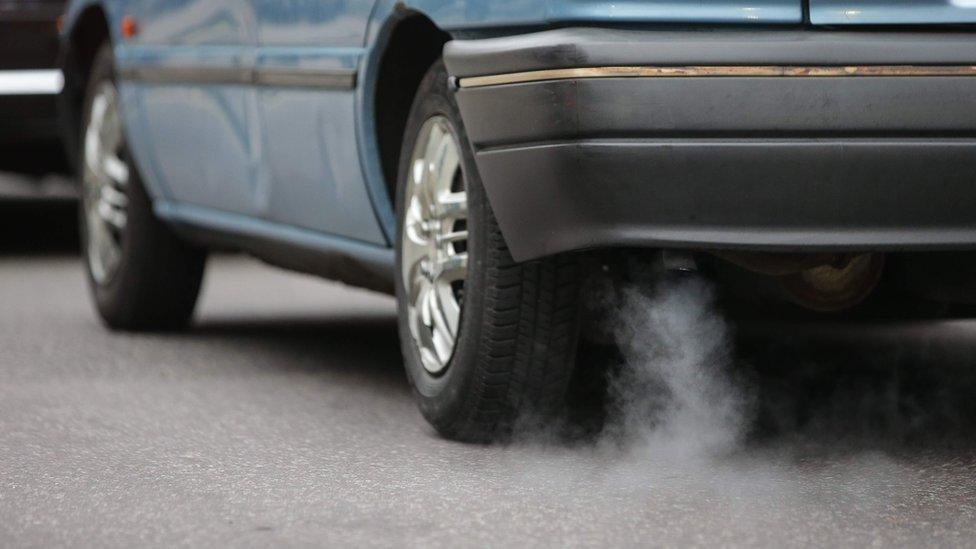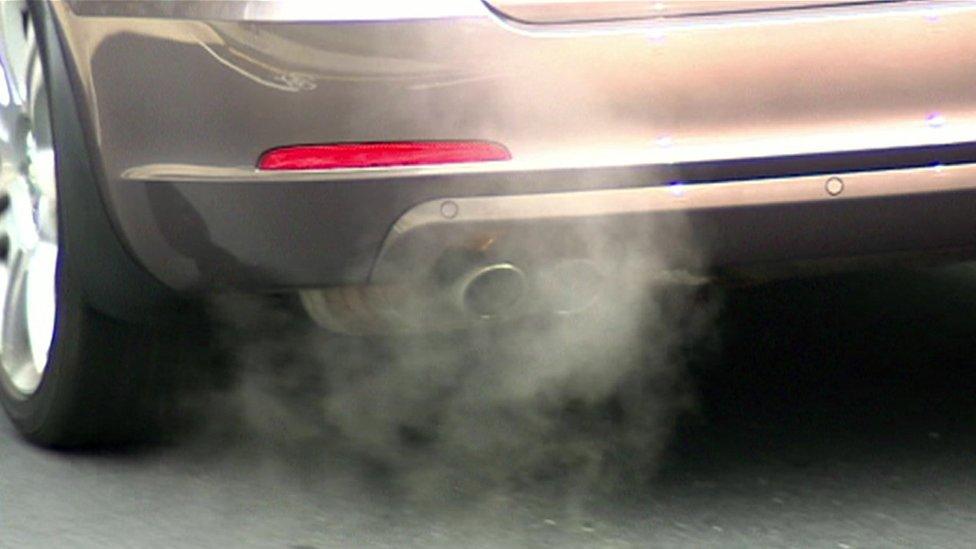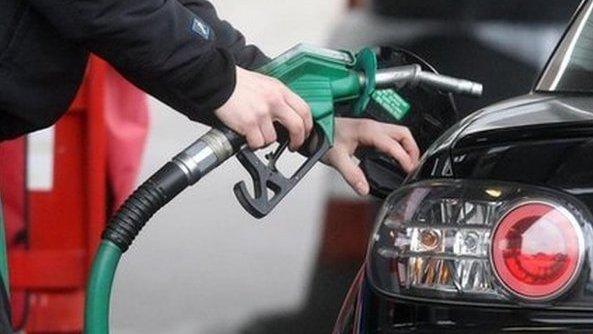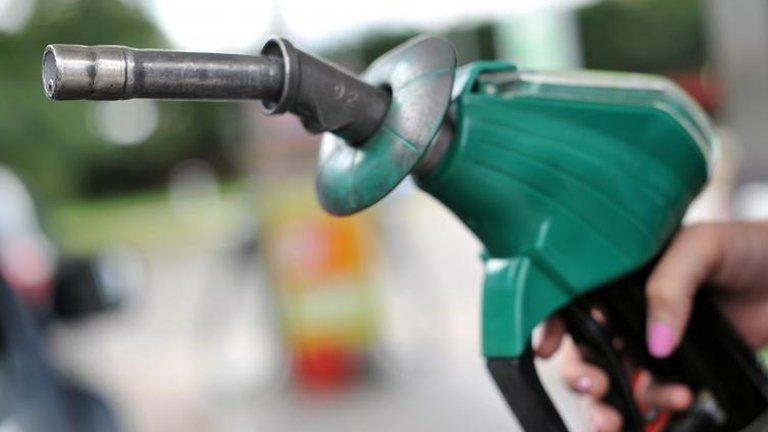'Thousands' driving without crucial diesel filters
- Published

It is illegal to drive a diesel car with the particulate filter removed
Thousands of motorists are breaking the law by driving diesel cars without pollution filters, experts have told BBC 5 live Investigates.
The Driver and Vehicle Standards Agency says 1,800 cars have been caught since 2014.
But experts say they believe the number is much higher, claiming the current MOT test, which requires only a visual inspection, is not fit for purpose.
The DVSA says it plans to introduce changes to improve the test next year.
All new diesel cars produced after 2009 have diesel particulate filters designed to reduce pollution levels, but they can sometimes get clogged up and break down, costing thousands of pounds to replace.
Because of the cost involved, some motorists are opting instead to have them removed.
It is illegal for drivers to use a car with the DPF removed, but it is not illegal for garages to take them out.
5 live Investigates followed the progress of a car which had its filter removed through MOT tests at three different garages.
UK scientists estimate air pollution cuts British people's lives by an average of six months
Mechanics failed to spot the filter had been taken out on each occasion.
MOT 'not fit for purpose'
Frank Kelly, professor of environmental health at Kings College, London, said the health impact was devastating.
"If a DPF is removed, it takes the work being done to restrict emissions back 30 years.
"A car with a DPF removed has a particulate count 20 times higher than one with it.
"The particles lead to numerous health problems such as lung cancer, heart attacks, strokes, Parkinson's, Alzheimer's - and can also affect an unborn child in the womb."
Simple tips to avoid inhaling air from traffic and other common sources of pollution
Experts have told 5 live Investigates that the 1,800 cars which failed the MOT test since 2014 because the filter had been removed are just the tip of the iceberg.
They believe many thousands more are getting away with it because current emission tests do not always detect it, and another test - which involves only a visual inspection of the filter unit from the outside - is not adequate.
Nick Molden, chief executive of Emissions Analytics, said: "It is clear a more detailed inspection of vehicles is required during MOT, and potentially spot-checking of vehicles in real world situations is needed, too.
"The MOT test is clearly not fit for purpose in checking if a DPF has been removed."
'My car was illegal'
But some motorists say the problem with DPFs lies with the manufacturers - as they can need to be replaced multiple times, while the cost can be prohibitive.
Andrew Giller was quoted £1,000 for a replacement on his seven-year-old car - and he had to get it done four times in quick succession because it kept getting clogged up.
He said: "The car manufacturer should play a responsible part and guarantee the DPF filter for the life of the car.
"The problem is with the manufacturers, not the vehicle owner, but we are bearing the enormous cost of inefficient manufacture."
Another car owner, Liz, told the BBC she bought a second-hand car without realising the DPF had been removed.
She said: "I am reliant on my car for work and getting the kids to school, have never broken the law and was shocked to find out I was driving an illegal car.
"I cannot afford as a single parent to pay £3,200 for new unit for a car that is only worth £5,000."
'Close the loophole'
Labour MP Mary Creagh, who is chairwoman of the environmental audit committee, said: "I'm concerned there could be tens of thousands of cars on the road which have had the DPF removed.
"The government should tighten MOT tests and close the legal loophole that allows garages to remove them and cheat the public out of clean air."
A spokesman for the Department for Transport said there were plans to improve the test to make it more effective.
A spokesman for the Driver and Vehicle Standards Agency said: "DVSA is making further changes to the MOT manual and to the diesel emissions limits for modern vehicles, in May 2018.
"These will make the test more robust and better able to detect where emissions control equipment has been tampered with."

To hear more about this story, tune into 5 live Investigates on 29 October at 11:00 BST or listen to the podcast.
Have you got something you want investigating? We want to hear from you. Email us., external
- Published10 December 2016

- Published20 October 2014

- Published5 December 2013
